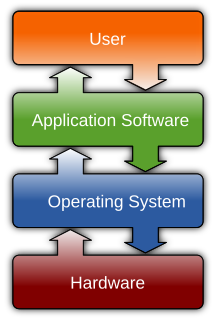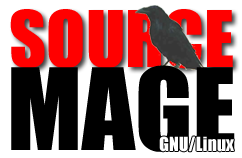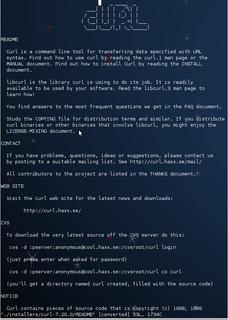The Gnits standards are a collection of standards and recommendations for programming, maintaining, and distributing software. They are published by a group of GNU project maintainers who call themselves "Gnits", which is short for "GNU nit-pickers". As such, they represent advice, not Free Software Foundation or GNU policy, but parts of the Gnits' standards have seen widespread adoption among free software programmers in general.
Standardization or standardisation is the process of implementing and developing technical standards based on the consensus of different parties that include firms, users, interest groups, standards organizations and governments Standardization can help to maximize compatibility, interoperability, safety, repeatability, or quality. It can also facilitate commoditization of formerly custom processes. In social sciences, including economics, the idea of standardization is close to the solution for a coordination problem, a situation in which all parties can realize mutual gains, but only by making mutually consistent decisions. This view includes the case of "spontaneous standardization processes", to produce de facto standards.

Computer software, or simply software, is a collection of data or computer instructions that tell the computer how to work. This is in contrast to physical hardware, from which the system is built and actually performs the work. In computer science and software engineering, computer software is all information processed by computer systems, programs and data. Computer software includes computer programs, libraries and related non-executable data, such as online documentation or digital media. Computer hardware and software require each other and neither can be realistically used on its own.
The Free Software Foundation (FSF) is a 501(c)(3) non-profit organization founded by Richard Stallman on 4 October 1985 to support the free software movement, which promotes the universal freedom to study, distribute, create, and modify computer software, with the organization's preference for software being distributed under copyleft terms, such as with its own GNU General Public License. The FSF was incorporated in Massachusetts, US, where it is also based.
The Gnits standards are extensions to, refinements of, and annotations for the GNU Standards. However, they are in no way normative in GNU; GNU maintainers are not required to follow them. Nevertheless, maintainers and programmers often find in Gnits standards good ideas on the way to follow GNU Standards themselves, as well as tentative, non-official explanations about why some GNU standards were decided the way they are. There are very few discrepancies between Gnits and GNU standards, and they are always well noted as such.
The standards address aspects of software architecture, program behaviour, human–computer interaction, C programming, documentation, and software releases.
Software architecture refers to the high level structures of a software system and the discipline of creating such structures and systems. Each structure comprises software elements, relations among them, and properties of both elements and relations. The architecture of a software system is a metaphor, analogous to the architecture of a building. It functions as a blueprint for the system and the developing project, laying out the tasks necessary to be executed by the design teams.
Human–computer interaction (HCI) researches the design and use of computer technology, focused on the interfaces between people (users) and computers. Researchers in the field of HCI both observe the ways in which humans interact with computers and design technologies that let humans interact with computers in novel ways. As a field of research, human–computer interaction is situated at the intersection of computer science, behavioral sciences, design, media studies, and several other fields of study. The term was popularized by Stuart K. Card, Allen Newell, and Thomas P. Moran in their seminal 1983 book, The Psychology of Human–Computer Interaction, although the authors first used the term in 1980 and the first known use was in 1975. The term connotes that, unlike other tools with only limited uses, a computer has many uses and this takes place as an open-ended dialog between the user and the computer. The notion of dialog likens human–computer interaction to human-to-human interaction, an analogy which is crucial to theoretical considerations in the field.
Software documentation is written text or illustration that accompanies computer software or is embedded in the source code. The documentation either explains how the software operates or how to use it, and may mean different things to people in different roles.
As of 2008, the Gnits standards carry a notice that they are moribund and no longer actively maintained, and points readers to the manuals of Gnulib, Autoconf, and Automake, which are said to cover many of the same topics.
Gnulib, also called the GNU portability library, is a collection of software subroutines which are designed to be usable on many operating systems. The goal of the project is to make it easy for free software authors to make their software run on many operating systems. Since source is designed to be copied from gnulib, it is not a library per-se, as much as a collection of portable idioms to be used in other projects.
GNU Autoconf is a tool for producing configure scripts for building, installing and packaging software on computer systems where a Bourne shell is available.

In software development, GNU Automake is a programming tool to automate parts of the compilation process. It eases usual compilation problems. For example, it points to needed dependencies.
This page is based on this
Wikipedia article Text is available under the
CC BY-SA 4.0 license; additional terms may apply.
Images, videos and audio are available under their respective licenses.

Cygwin is a POSIX-compatible environment that runs natively on Microsoft Windows. Its goal is to allow programs of Unix-like systems to be recompiled and run natively on Windows with minimal source code modifications by providing them with the same underlying POSIX API they would expect in those systems.

Free software or libre software is computer software distributed under terms that allow users to run the software for any purpose as well as to study, change, and distribute it and any adapted versions. Free software is a matter of liberty, not price: users—individually or in cooperation with computer programmers—are free to do what they want with their copies of a free software regardless of how much is paid to obtain the program. Computer programs are deemed free insofar as they give users ultimate control over the first, thereby allowing them to control what their devices are programmed to do.

The free software movement (FSM) or free/open-source software movement (FOSSM) or free/libre open-source software movement (FLOSSM) is a social movement with the goal of obtaining and guaranteeing certain freedoms for software users, namely the freedom to run the software, to study and change the software, and to redistribute copies with or without changes. Although drawing on traditions and philosophies among members of the 1970s hacker culture and academia, Richard Stallman formally founded the movement in 1983 by launching the GNU Project. Stallman later established the Free Software Foundation in 1985 to support the movement.

The GNU Manifesto was written by Richard Stallman and published in March 1985 in Dr. Dobb's Journal of Software Tools as an explanation of goals of the GNU Project, and as a call for support and participation in developing GNU, a free software computer operating system. It is held in high regard within the free software movement as a fundamental philosophical source.

An integrated development environment (IDE) is a software application that provides comprehensive facilities to computer programmers for software development. An IDE normally consists of at least a source code editor, build automation tools, and a debugger. Some IDEs, such as NetBeans and Eclipse, contain the necessary compiler, interpreter, or both; others, such as SharpDevelop and Lazarus, do not.

Source Mage is a Linux distribution. As a package is being installed, its source code is automatically downloaded, compiled, and installed. Source Mage is descended from Sorcerer.
The hacker culture is a subculture of individuals who enjoy the intellectual challenge of creatively overcoming limitations of software systems to achieve novel and clever outcomes. The act of engaging in activities in a spirit of playfulness and exploration is termed "hacking". However, the defining characteristic of a hacker is not the activities performed themselves, but the manner in which it is done and whether it is something exciting and meaningful. Activities of playful cleverness can be said to have "hack value" and therefore the term "hacks" came about, with early examples including pranks at MIT done by students to demonstrate their technical aptitude and cleverness. Therefore, the hacker culture originally emerged in academia in the 1960s around the Massachusetts Institute of Technology (MIT)'s Tech Model Railroad Club (TMRC) and MIT Artificial Intelligence Laboratory. Hacking originally involved entering restricted areas in a clever way without causing any major damages. Some famous hacks at the Massachusetts Institute of Technology were placing of a campus police cruiser on the roof of the Great Dome and converting the Great Dome into R2-D2.

The GNU Build System, also known as the Autotools, is a suite of programming tools designed to assist in making source code packages portable to many Unix-like systems.

GNU Libtool is a computer programming tool from the GNU build system used for creating portable compiled libraries.

The GNU Project is a free-software, mass-collaboration project, first announced on September 27, 1983 by Richard Stallman at MIT. Its aim is to give computer users freedom and control in their use of their computers and computing devices, by collaboratively developing and providing software that is based on the following freedom rights: users are free to run the software, share it, study it and modify it. GNU software guarantees these freedom-rights legally, and is therefore free software; the use of the word "free" always being taken to refer to freedom.
A cross compiler is a compiler capable of creating executable code for a platform other than the one on which the compiler is running. For example, a compiler that runs on a Windows 7 PC but generates code that runs on Android smartphone is a cross compiler.

The GNU C Library, commonly known as glibc, is the GNU Project's implementation of the C standard library. Despite its name, it now also directly supports C++. It was started in the early 1990s by the Free Software Foundation (FSF) for their GNU operating system.

A README file contains information about other files in a directory or archive of computer software. A form of documentation, it is usually a simple plain text file called READ.ME, README.TXT, README.md, README.1ST – or simply README.
The GNU toolchain is a broad collection of programming tools produced by the GNU Project. These tools form a toolchain used for developing software applications and operating systems.
The GNU coding standards are a set of rules and guidelines for writing programs that work consistently within the GNU system. The GNU Coding Standards were written by Richard Stallman and other GNU Project volunteers. The standards document is part of the GNU Project and is available from the GNU website. Though it focuses on writing free software for GNU in C, much of it can be applied more generally. In particular, the GNU Project encourages its contributors to always try to follow the standards—whether or not their programs are implemented in C.

lzip is a free, command-line tool for the compression of data; it employs the Lempel–Ziv–Markov chain algorithm (LZMA) with a user interface that is familiar to users of usual Unix compression tools, such as gzip and bzip2.










